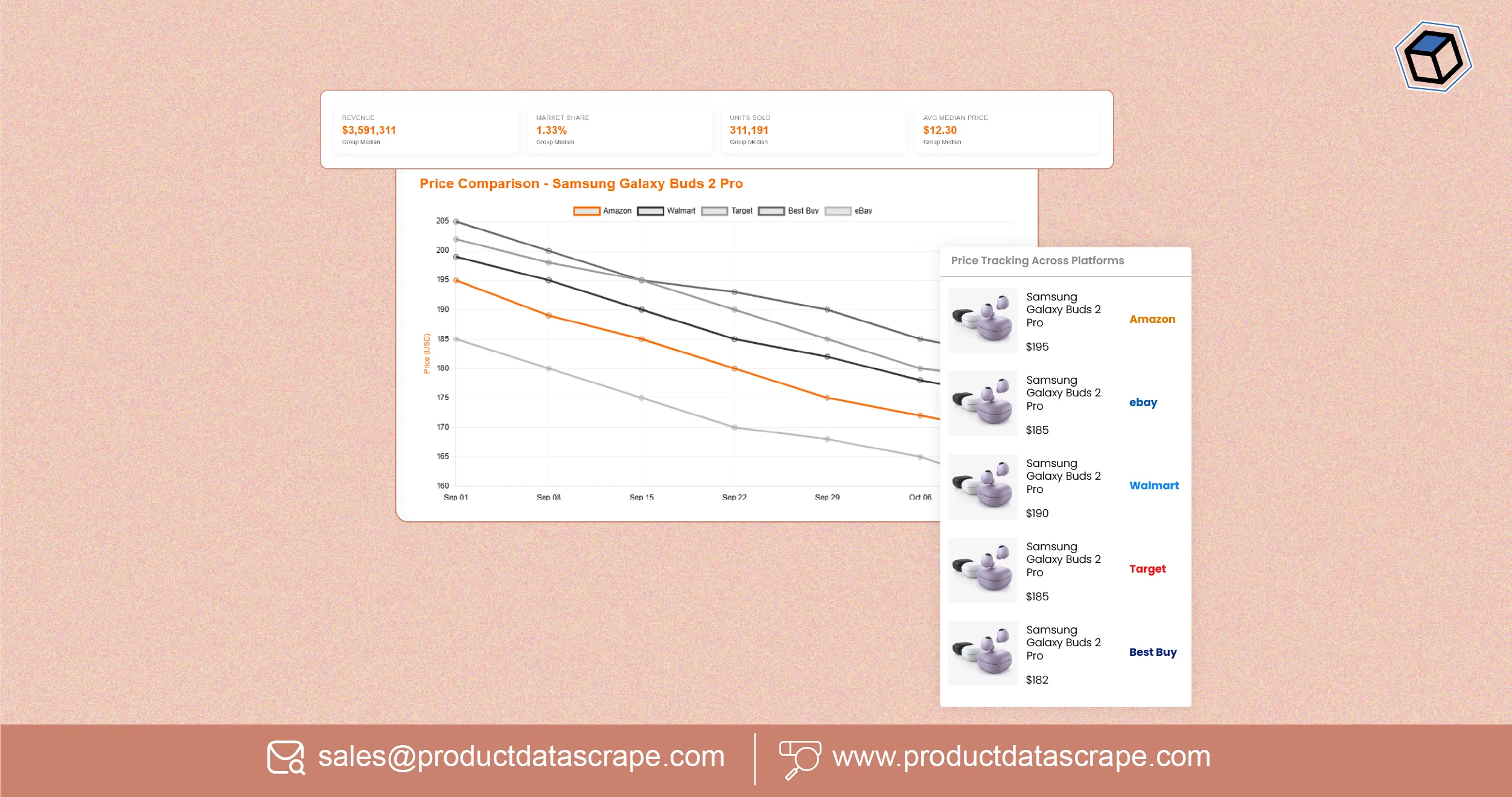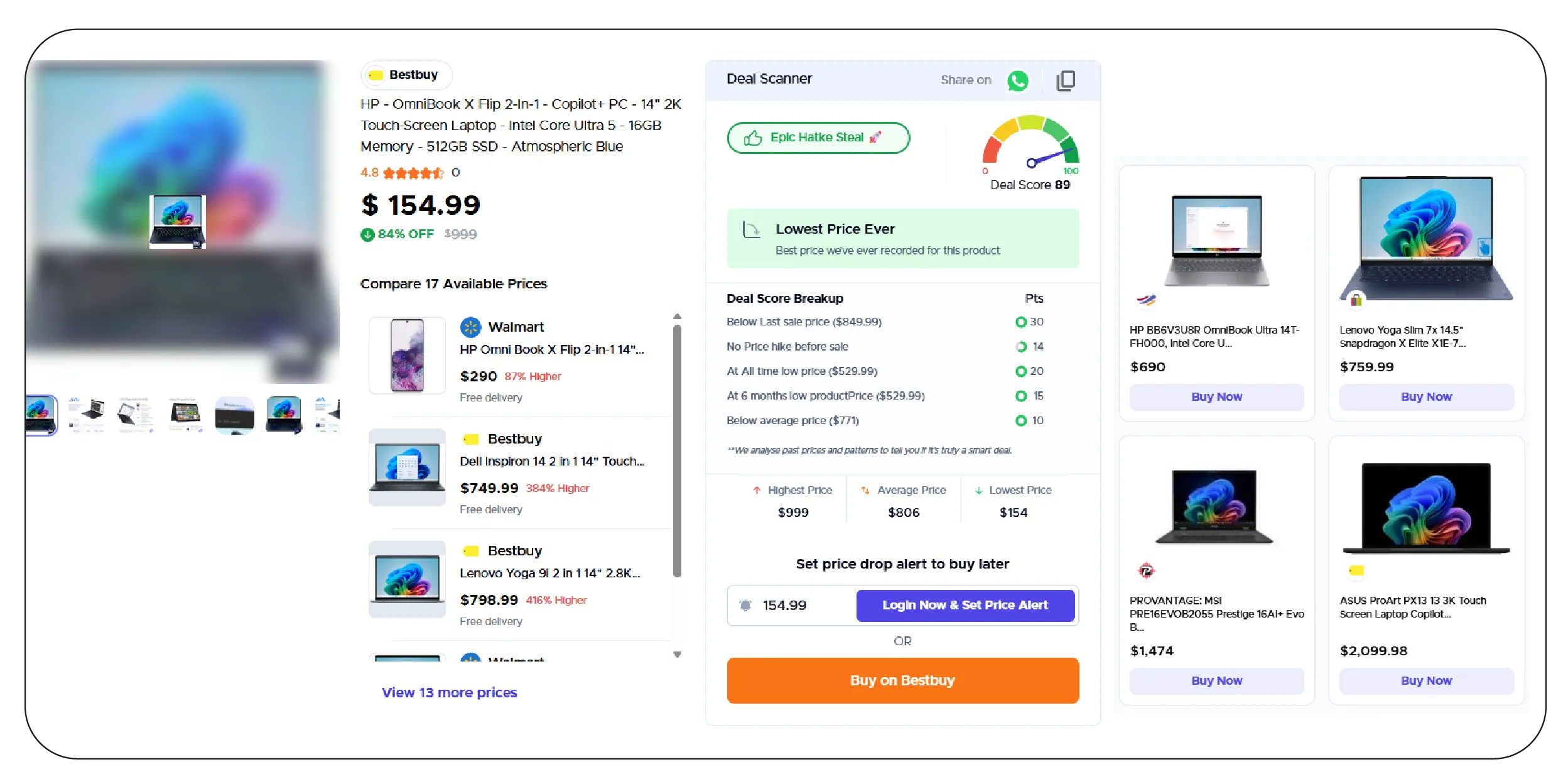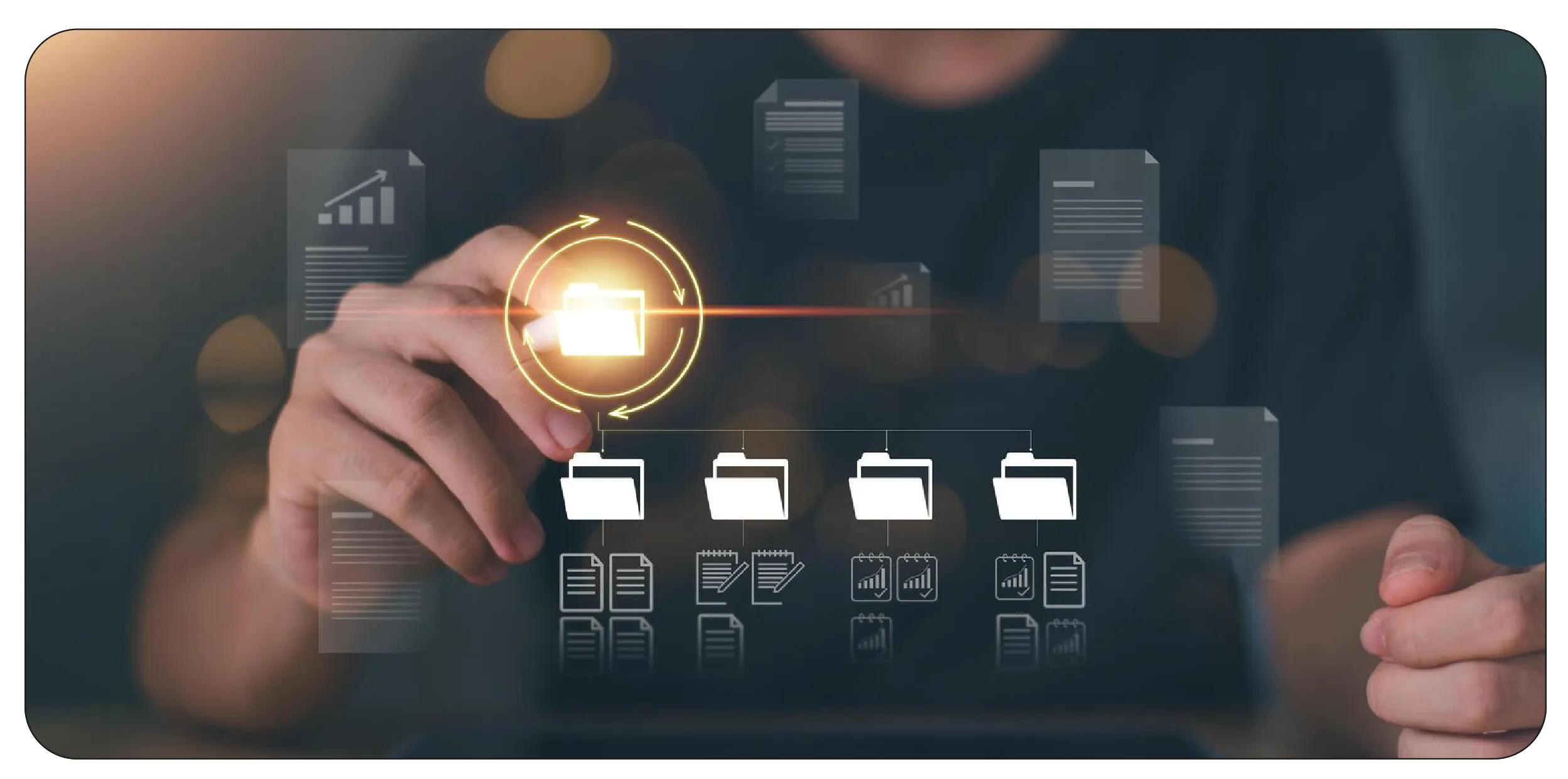
Introduction
In the rapidly evolving eCommerce landscape, businesses face the challenge of
staying competitive amidst dynamic pricing strategies. The global eCommerce market is projected
to reach $7.4 trillion in 2025, up from $5.7 trillion in 2023, reflecting a significant growth
trajectory. This growth underscores the importance of adopting advanced technologies to monitor
and compare prices across various platforms.
A price comparison API for global eCommerce serves as a vital tool for
businesses aiming to track competitor pricing, identify market trends, and adjust their
strategies accordingly. By integrating such APIs, companies can automate the process of data
extraction, ensuring real-time updates and accuracy. This automation not only saves time but
also enhances decision-making capabilities.
Furthermore, the adoption of AI-driven tools in eCommerce is on the rise. In
2025, 58% of consumers prefer to use AI tools instead of traditional search engines, up from 25%
in 2023. This shift indicates a growing reliance on intelligent systems for personalized
shopping experiences.
Building a robust global eCommerce price comparison API involves several key
components: data extraction, data normalization, and data presentation. Utilizing tools like
ScraperAPI for price comparison can facilitate the extraction of data from multiple eCommerce
websites, ensuring scalability and efficiency. Additionally, implementing a Python price
comparison API allows for flexibility and customization in data processing and analysis.
A well-constructed product price comparison API not only aids in monitoring
competitor prices but also assists in dynamic pricing strategies, inventory management, and
customer satisfaction by offering competitive pricing. By leveraging these technologies,
businesses can gain a significant edge in the competitive eCommerce market.
Challenges in Real-Time Price Tracking

Real-time price tracking across multiple eCommerce platforms presents several
challenges, including handling dynamic content, managing large volumes of data, and ensuring
data accuracy. Without an effective solution, businesses may struggle to keep up with market
fluctuations, leading to missed opportunities and potential revenue loss.
Implementing a product price comparison API addresses these issues by
automating the data extraction process, allowing businesses to monitor price changes in real
time. This automation reduces the risk of human error and ensures that the data collected is
up-to-date and accurate, enabling businesses to make informed pricing decisions promptly.
Furthermore, the integration of AI-driven tools can enhance the accuracy and
efficiency of price tracking. For instance, AI algorithms can analyze historical pricing data to
predict future trends, providing businesses with valuable insights for strategic planning.
Additionally, the scalability of the tracking system is crucial. As businesses
expand their product offerings and target markets, the volume of data to be processed increases.
Ensuring that the price comparison system can handle large datasets without compromising
performance is essential for maintaining efficiency and reliability.
In conclusion, overcoming the challenges of real-time price tracking requires
the adoption of advanced technologies and strategies. By leveraging eCommerce price tracking
APIs and AI-driven tools, businesses can enhance their ability to monitor and respond to price
changes effectively, thereby maintaining a competitive edge in the market.
Data Normalization Across Platforms

Different eCommerce platforms often present product data in varying formats,
making it challenging to compare prices directly. Inconsistent data structures can lead to
difficulties in aggregating and analyzing information, hindering the effectiveness of price
comparison efforts.
A web scraping API for eCommerce pricing can standardize data from multiple
sources, transforming it into a uniform format suitable for comparison. This normalization
process ensures that businesses can accurately assess competitor pricing, identify trends, and
adjust their strategies accordingly.
Moreover, the integration of AI technologies can further enhance data
normalization. AI algorithms can automatically detect and correct discrepancies in product data,
ensuring consistency across different platforms. This capability reduces manual intervention and
improves the overall efficiency of the data normalization process.
Additionally, implementing machine learning models can enable the system to
learn from historical data and make intelligent decisions about data normalization. These models
can adapt to changes in data formats over time, ensuring that the system remains effective as
eCommerce platforms evolve.
In summary, addressing the challenges of data normalization requires the
adoption of advanced technologies and methodologies. By leveraging product pricing intelligence
APIs and AI-driven tools, businesses can streamline the process of data standardization, leading
to more accurate and actionable pricing insights.
Standardize your pricing data effortlessly—leverage our data
normalization solutions to compare, analyze, and optimize prices across
all eCommerce platforms today!
Contact Us Today!
Scalability Concerns
As businesses expand their product offerings and target markets, the volume of
data to be processed increases. Scalability becomes a critical factor in maintaining the
performance and reliability of the price comparison system.
Utilizing a product pricing intelligence API allows businesses to scale their
price comparison efforts efficiently. These APIs are designed to handle large datasets, ensuring
consistent performance even as the scope of operations grows. This scalability ensures that
businesses can continue to monitor pricing trends effectively without compromising on speed or
accuracy.
Furthermore, the adoption of cloud-based solutions can enhance scalability.
Cloud platforms offer flexible resources that can be adjusted based on demand, allowing
businesses to scale their operations without significant upfront investment.
Additionally, implementing microservices architecture can improve scalability
by breaking down the system into smaller, manageable components. This approach enables
independent scaling of different parts of the system, optimizing resource utilization and
performance.
In conclusion, ensuring scalability in price comparison systems requires
careful planning and the adoption of appropriate technologies. By leveraging eCommerce price
tracking APIs, cloud solutions, and microservices architecture, businesses can build systems
that grow with their operations, maintaining performance and reliability as they expand.
Integration with Existing Systems

Integrating a price comparison API with existing business systems, such as
inventory management and CRM platforms, can be complex. Ensuring seamless integration is
essential for maximizing the utility of the API and streamlining operations.
A custom eCommerce dataset scraping solution can be tailored to fit the
specific needs of a business, facilitating smooth integration with existing systems. By aligning
the API's functionality with business processes, companies can enhance operational efficiency
and leverage pricing insights more effectively.
Moreover, adopting standardized data formats and protocols can simplify
integration efforts. Utilizing widely accepted standards ensures compatibility with various
systems and reduces the complexity of the integration process.
Additionally, implementing robust API management practices can facilitate
integration. API gateways and management platforms can provide features like authentication,
rate limiting, and monitoring, ensuring secure and efficient interactions between systems.
In summary, successful integration of price comparison APIs requires careful
planning and the adoption of best practices. By leveraging eCommerce price tracking APIs,
standardized data formats, and API management tools, businesses can achieve seamless
integration, enhancing operational efficiency and decision-making capabilities.
Handling Anti-Scraping Measures
Many eCommerce platforms implement anti-scraping technologies to protect their
data. Overcoming these measures is crucial for obtaining accurate and comprehensive pricing
information.
Employing a web data intelligence API can help navigate these challenges by
utilizing advanced techniques to access and extract data while adhering to legal and ethical
standards. These APIs are equipped with features to bypass common anti-scraping mechanisms,
ensuring uninterrupted data collection.
Additionally, implementing strategies like rotating IP addresses, using
headless browsers, and respecting robots.txt files can further mitigate the impact of
anti-scraping measures. These practices help maintain access to valuable data without violating
platform policies.
Furthermore, establishing clear communication with eCommerce platforms can lead
to mutually beneficial arrangements. Collaborating with platforms to access their data through
official channels ensures compliance and fosters positive relationships.
In conclusion, effectively handling anti-scraping measures requires a
combination of advanced technologies, ethical practices, and strategic partnerships. By
leveraging eCommerce price tracking APIs, implementing mitigation strategies, and fostering
collaboration, businesses can access the data they need while maintaining compliance and
integrity.
Overcome anti-scraping challenges confidently—use our advanced web data
intelligence APIs to access, extract, and monitor eCommerce pricing
seamlessly today!
Contact Us Today!
Ensuring Data Security and Compliance

With the increasing importance of data privacy and security, ensuring that the
price comparison API complies with relevant regulations is paramount. Non-compliance can lead to
legal issues and damage to a company's reputation.
Implementing eCommerce price tracking API solutions that adhere to industry
standards and regulations ensures that data collection and processing are secure and compliant.
These APIs incorporate features like encryption and access controls to protect sensitive
information and maintain trust with customers and partners.
Moreover, conducting regular audits and assessments can help identify potential
vulnerabilities and ensure ongoing compliance. Establishing a culture of data security within
the organization further reinforces the importance of protecting sensitive information.
Additionally, providing transparency to customers about data collection
practices can enhance trust and foster positive relationships.
Why Choose Product Data Scrape?
In today’s competitive eCommerce environment, having access to accurate and
timely pricing data is crucial. Product Data Scrape specializes in delivering robust solutions
for building a price comparison API for global eCommerce, enabling businesses to monitor,
analyze, and respond to market trends efficiently. Our expertise in E-commerce Price Monitoring
Services and Competitor Price Monitoring Services ensures that clients have continuous
visibility into pricing dynamics across multiple platforms, including major marketplaces like
Amazon, eBay, and regional eCommerce sites.
By leveraging advanced technologies such as ScraperAPI for price comparison,
Python price comparison API, and web scraping API for eCommerce pricing, we provide scalable
solutions that integrate seamlessly with existing business systems. Our Custom eCommerce Dataset
Scraping and Web Data Intelligence API capabilities allow clients to extract product information
from any eCommerce website, normalize it, and convert it into actionable insights.
With Product Data Scrape, companies can access Product price Comparison API
solutions tailored to their needs, gaining a competitive edge by implementing real-time
eCommerce price tracking API solutions. Our services help businesses improve pricing strategies,
optimize revenue, and make data-driven decisions that drive growth and profitability across
global markets.
Conclusion
Building a price comparison API for global eCommerce is no longer optional; it
is a strategic necessity for businesses seeking to stay competitive in the fast-paced online
marketplace. By integrating a well-constructed global eCommerce price comparison API, companies
can automate price tracking, gain real-time insights into competitor pricing, and implement
dynamic pricing strategies that enhance profitability. Leveraging Product pricing intelligence
API solutions ensures that data collected is accurate, secure, and actionable, enabling informed
decision-making across all levels of business operations.
Partnering with Product Data Scrape provides unmatched expertise in E-commerce
Price Monitoring Services, Competitor Price Monitoring Services, and Pricing Intelligence
Services . Our solutions, including ScraperAPI for price comparison, Python price comparison API,
and web scraping API for eCommerce pricing, allow businesses to scale operations, overcome
anti-scraping challenges, and maintain compliance with data privacy regulations.
Whether you need to Scrape Data From Any Ecommerce Websites , implement Custom
eCommerce Dataset Scraping, or utilize Web Data Intelligence API solutions, Product Data Scrape
ensures a seamless experience from data extraction to actionable insights.
Empower your business with a price comparison API for global eCommerce and
transform raw pricing data into a strategic advantage. Contact Product Data Scrape to get
started and stay ahead in the competitive eCommerce landscape.





































.webp)





.webp)
.webp)